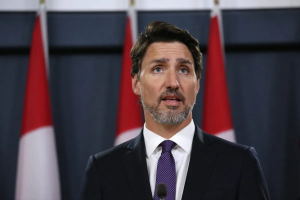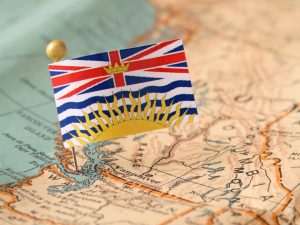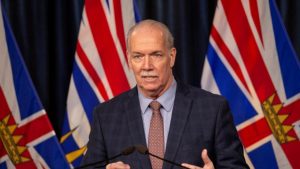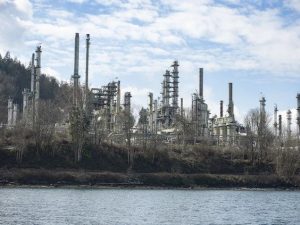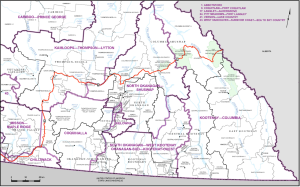Dr. Amy Janzwood co-authors story on harmful natural gas “bridge fuel” narrative
“Decarbonization will have real costs for oil producing provinces,” writes SSHRC Postdoctoral Fellow Amy Janzwood. “Successful policy-making needs to address these impacts up front.”
Is Canada’s Gazprom maneuver a sign of war fatigue? Visiting Prof. Swaran Singh writes on Canada’s difficult decision
“At the very least, this concession to Gazprom brings Canada back into the global spotlight,” writes Prof. Singh. Canada’s choice to continue with use of Russian turbines has been controversial, and considering the length of the Ukraine-Russia war, may be a sign of crisis fatigue.
Q&A: Dr. Carey Doberstein talks about his newest research on the effectiveness of Canadian agencies
Many of the Canadian government’s public services to Canadian citizens come in the form of agencies, through which these services are organized and provided. This trend of “agencification” in liberal nation-states, though swift and sweeping, has not been thoroughly assessed for performance. UBC Political Science Associate Professor Dr. Carey Doberstein (PhD, UofT), in his newest […]
Prof. Allan Tupper discusses the future of the BC NDP after John Horgan
What’s in store for the BC NDP, now that Premier John Horgan has resigned? Prof Allan Tupper says that “the message of the party has broadened to show British Columbians that the NDP has mainstream values,” and can hopefully expect good leadership to come.
BC Premier John Horgan succeeded in branding the NDP as a strong option, says Prof. Gerald Baier
“I think his legacy is just really turning around the fortunes of the NDP … that has a lasting effect,” said Prof. Gerald Baier, who also noted that under Horgan’s leadership, the NDP made strong progress where they historically had not. “This can potentially be a dynasty for the party.”
Prof. Allan Tupper praises BC Premier John Horgan’s political legacy
Thanks to BC Premier John Horgan, “the traditional critique of the NDP as big spenders, and debt raisers and all that has been [turned] on its head,” says Prof. Allan Tupper, praising Horgan’s decisiveness and positive impact on BC’s economy,
Prof. Gerald Baier comments on BC Premier John Horgan’s future prospects with politics and the NDP
Prof. Baier examines Premier Horgan’s five-year long leadership of the NDP and the uncertainty of him being a three-term premier: “You could see him feeling that he’s reached maybe not a peak, but certainly he is close to firing on all engines, so to speak, and sort of getting out while he’s ahead.”
Prof. Kathryn Harrison says that a one-cent-per-litre increase in gas prices is a small price to pay to reduce greenhouse gas emissions
Expanding refineries and low-carbon fuel plans could make BC fuel more expensive, but “to fix climate change, we’re all going to need to be part of that transition (to sustainable energy sources). And I think there’s still a level of denial about that,” Prof. Kathryn Harrison said. “We tend to focus on the costs and not think about the consequences of inaction.”
Prof. Gerald Baier weighs in on addition of new Okanagan federal election districts
“I wouldn’t call it just an extra riding for the Interior or the Okanagan,” says Professor Gerald Baier. “It’s a big jigsaw puzzle, but it’s not just an additional Conservative seat, as some are suggesting—it doesn’t work that way.”
The return of oligarchy? Threats to representative democracy in Latin America
Maxwell Cameron discusses the classical theory of oligarchy, examines the use of the concept in contemporary theories of comparative politics and describes oligarchic modes of rule in Latin America’s hierarchical market economies.

